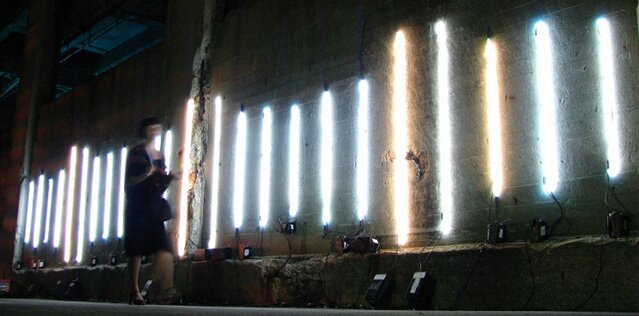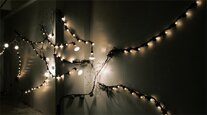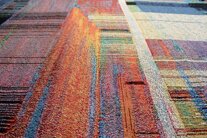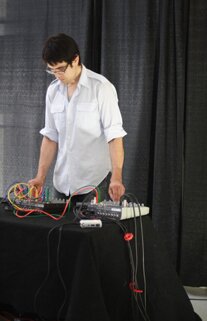

ART/CULTURE
Phillip Stearns Interview
Phillip Stearns considers his medium to be electricity. His background in engineering and applied physics leads to circuitry-intensive experimentations in music and art. In his current project Glitch Textiles, he takes images from the series called Year of The Glitch—which captured distortions from broken digital cameras for each day of the year—and had them machine-loomed onto blankets. Deluge (2012) is a sculpture composed of transistors and lights, which transmit unoccupied radio frequencies into what the artist calls "a showering rain of light." In his work, he often questions technological dependence – questions that are especially relevant in the aftermath of Hurricane Sandy, when so many of us were left without electricity or worse. At a time when we’re all feeling a little ambivalent toward old infrastructure and new technology, I sought to hear Phillip’s perspective on the state of things.



RSS Feed